Tyson: The Movie
Tyson. The very name alone is almost synonymous with animalistic aggression, brutality and savage power. Is it any wonder that, certainly in the late 1980s and early '90s (and even now) you find pit bulls and other such dogs named Tyson? There was a period, albeit a brief one, when Mike Tyson was the most feared boxer on the planet and a man mentioned in the same breath as the likes of Rocky Marciano, Jack Dempsey and Joe Louis.
Michael Gerard Tyson was born in 1966 and had an extremely troubled upbringing, unsure who his father was and living amongst drug dealers and an assortment of violent criminals. As a boy, Mike Tyson had to learn to look after himself and was picked on for being overweight and shy. Living on the wrong side of the law and having a far from ideal upbringing in the Brownsville ghetto of Brooklyn, everything changed for Tyson when he was found guilty of robbery and sent to a youth offenders institute where he was taught to box and then, on his release, allowed to continue boxing under the tutelage of Kevin Rooney. Rooney was a protégé of Cus D'Amato, a wily old trainer who saw the potential in this powerful but insecure young man and agreed to become his legal guardian.
D'Amato, Rooney and, for a while, Freddie Roach all trained the young man who had a devastating amateur career, knocking out every opponent he faced in the Junior Olympics -- one in only eight seconds. Tyson's style wasn't ideally suited to the amateur game so he turned professional at 18 and reeled off a series of quick knockout wins which brought into the attention of notorious boxing promoter Don King. Under King's guidance, Tyson fought a selection of fairly well-regarded heavyweights, despatching most of them in chilling fashion, before entering a heavyweight tournament which was designed to unify the three main belts (WBC, WBA and IBF) for the first time. When Tyson knocked out Trevor Berbick in the second round on November 22, 1986 he became the youngest heavyweight champion in history and the first man to hold all three belts in the heavyweight division.
As famous for his exploits in the ring as out of it, Tyson's private life soon began to spiral out of control with an ill advised marriage to Robin Givens and a rape conviction when he was near the peak of his powers.
This film, by James Toback, is a series of interviews with Mike Tyson interspersed with footage from throughout his career, both amateur and professional, and even news footage and Robin Givens as an actress. James Toback isn't renowned as a great boxing authority and is considered more of an arthouse director so I went into this with eyes wide open.
The first thing that grabs your attention is Toback's use of split screen and overlapping voice over, presumably to illustrate Tyson's state of mind. As he has been on medication for bipolar disorder has some time now, I imagine this device was used to try and show what it is like inside Tyson's head -- obviously not a comfortable place to be one that seems utterly confused and always at a point where it could breaks down completely.
Love him or loathe him, Tyson is an utterly compelling character and the things he says in this film are occasionally fascinating and occasionally disgusting. It is quite interesting that he doesn't seem to hold a grudge against Robin Givens, even though the things she said in their divorce were quite horrific, with Tyson saying that they were "just kids". He has no such sympathy for Desirée Washington who describes as a "wretched swine of a woman" and it is at times like this that the quite placid Tyson turns into the savage Tyson. There is a distasteful undercurrent of misogyny that runs throughout the film, with Tyson seemingly of the opinion that women only exist to satisfy men's sexual desires, bear them children and serve on them.
This is where Toback's film is found a little wanting as it basically gives Tyson carte blanche to say whatever he wants and go completely unchallenged. Although some of the soundbites are used to cue up clips from his past, others really need someone to step in and say "Hang on. That is completely unacceptable." When you get the infamous clip of Tyson responding to a journalist's question at a pre-fight press conference about what he has to say to people who think he belongs in a straitjacket with a tirade of abuse that finishes with "I'll f*** you till you love me, faggot". There are times like this when an interviewer needs to prompt Tyson on where these verbal volleys come from and why he holds such strident homophobic and misogynistic views.
Mike Tyson would make great case study for a psychiatric paper and any shrink given access to the complete and unedited film stock would have absolutely wonderful time trying to understand or analyse Tyson. It would have been fascinating to hear from a psychiatrist or psychologist to see what they have to offer in terms of what lies beneath the often fearsome exterior. When Tyson gets onto his early career and spending time with Cus D'Amato, you do see that he really has deep feelings for his former mentor and does become visibly upset, nearly crying at one point but, probably unfortunately for him, not allowing himself to cry as he would probably regard this as a sign of weakness and something unforgivable in a man.
All in all, this is a fascinating and revealing documentary on the life and times of Mike Tyson, former Heavyweight Champion of the World and now a rather sad middle-aged figure.
The Disc
Extra Features
In documentaries, an audio commentary would be more or less redundant, but there are exceptions to this rule and Tyson would be one of them so it is a shame that we don't hear from James Toback. There is an interview with Adam Smith, a boxing commentator and reporter for Sky who talks about Tyson as a boxer and how he remembers following his career and the impact that Tyson surprise loss to James 'Buster' Douglas had on him and his friends at university. This is a reasonably interesting piece and, whilst no substitute for an interview with the director, is worth watching.
The Picture
The footage shot of Tyson now is very high quality and looks very good. It is obviously very well lit and shot with several cameras so they can switch from one to another or even, using split screen, shows several angles simultaneously. There is some rather odd footage of Tyson walking on the beach and I'm not sure what point this is supposed to serve.
Toback had access to a great deal of stock footage and interspersed this very well into the documentary and it's not often that you have a documentary with footage from competing networks and news footage. He has clearly done his research and it pays dividends.
The Sound
Although this isn't a film that requires a high definition soundtrack, the Dolby TrueHD 5.1 track is crystal clear and presents the dialogue beautifully so you can pick up every inflection, crack and tremble in Tyson's voice so you know when he is becoming emotional even if the hard exterior doesn't show it.
Final Thoughts
I can't think of another sportsman who would make for a more interesting subject than Mike Tyson. This is a man who achieved the highest honours in his sport, amassed a huge fortune and then, through expensive divorces and lawsuits (most notably with Don King, who he describes as "a reptilian mother f***er") blew everything to the point that he is practically bankrupt. Throw in a jail term, pre-fight brawls and breaking just about every rule there is in boxing, then you have a wealth of material for a documentary. When you have access to the subject himself for a candid interview, you really can't go wrong and James Toback doesn't, making a fascinating and revealing documentary.
This is a must see for any boxing fan, especially if you grew up revering Tyson, and it may well have crossover appeal to those who have heard about Tyson's misdemeanours and are slightly interested in finding out more about them and the man himself.
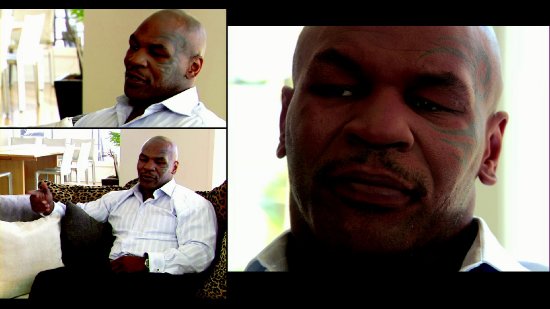
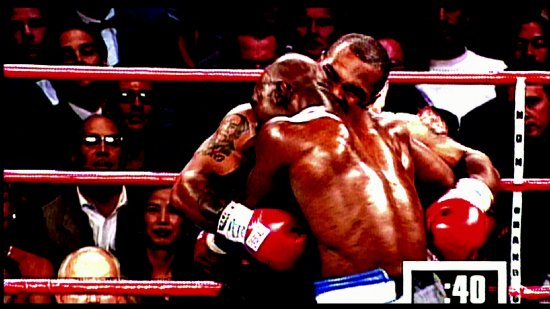
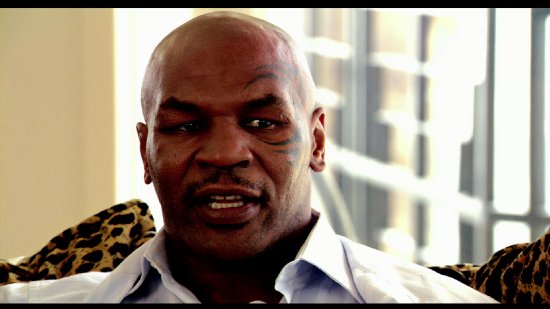
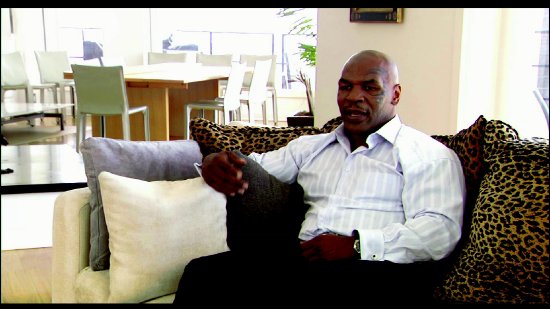
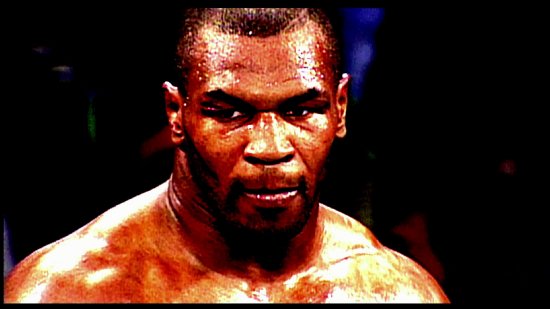
Your Opinions and Comments
Be the first to post a comment!